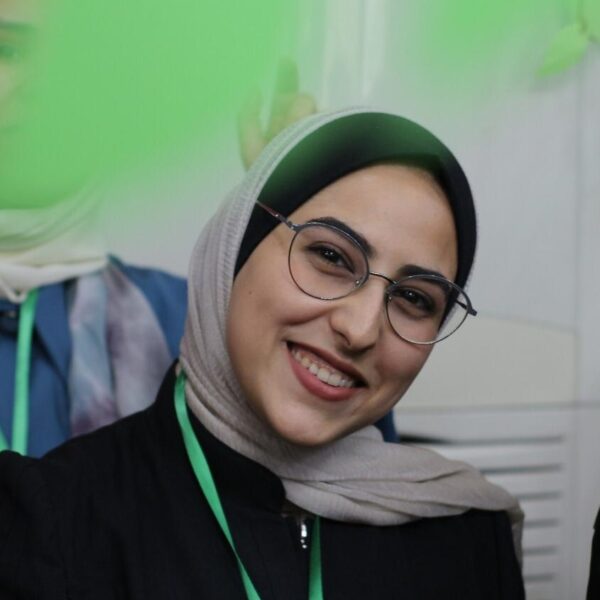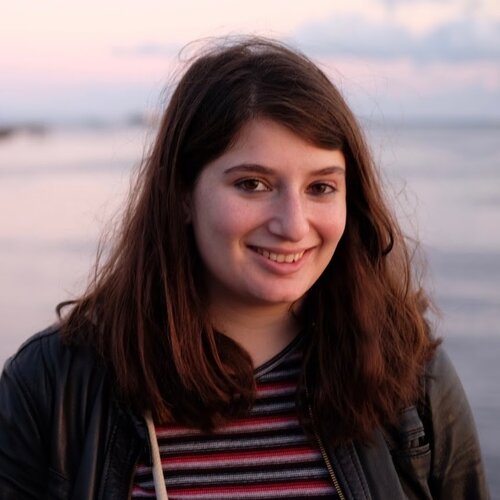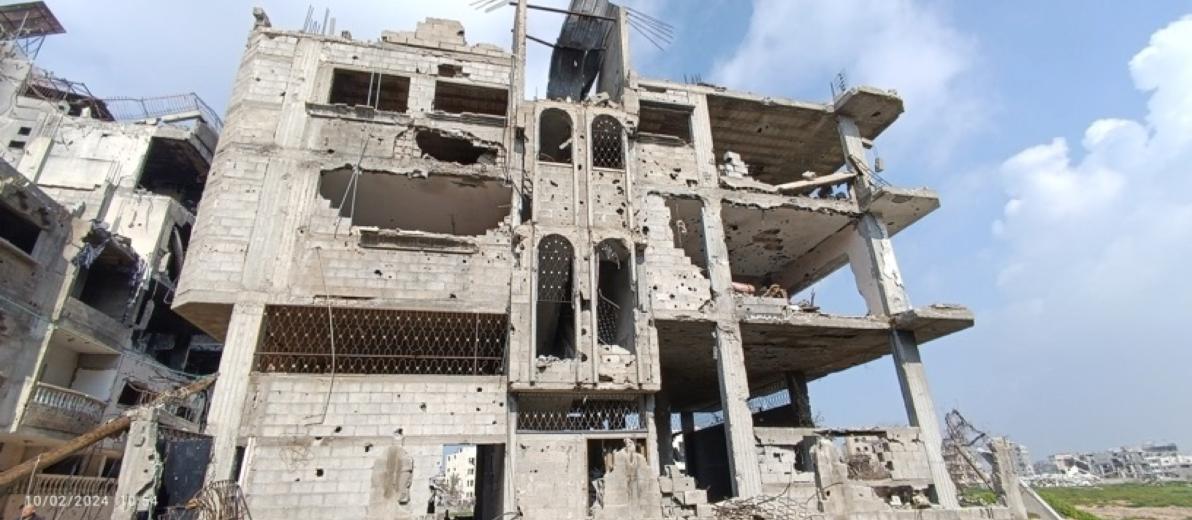
I threw off the covers and sat up in bed: it was already 8:00 a.m., which meant I would miss my first lecture of the day. My mind struggled against the hour. Why did lectures always have to be in the mornings?
I was looking for my black hijab, trying to catch my second lecture, when the sound of drones, like drunken flies, hit my ears.
My sister Rola’s voice cut short my search for the hijab. “Where are you going?” she asked. “There’s no college today.”
“What? Why?”
“There are three new martyrs,” she explained. “Three houses bombed in the middle of the night. Three people dead.”
I thought classes might’ve been canceled due to Labor Day, or Mother’s Day, or International Women’s Day. I somehow didn’t expect another war. The only sign was the sound of the drones.
I ran to check my phone and confirm my friends were okay, then scrolled through Instagram for the news. I came across a video of a Gazan child whose father had become a martyr that morning. Her eyes were full of tears and her voice was hoarse from crying. “Just because a father wants to defend his homeland doesn’t mean he’s a terrorist,” she said. I choked up at her words, how violence has turned our children’s language into something prematurely adult.
Writing about children, in general, is hard. But what if you want to write about children during wartime? My professor always used to tell me that when writing about children, you should allow them all the innocence of the world. They aren’t concerned with terrorists or spies or even the decline of the Egyptian pound and rise of the dollar. But the experiences of our children in Gaza has shown me that life often forces them into situations that break their innocence too soon. I remember Ghassan Kanafani’s words: “One scene can hurl him down from the ceiling of childhood onto the ruggedness of the road.”
My younger sister Tala, six years and three wars old, often begs my mom to open the cage so our rainbow-feathered bird Cookie can fly free. She thinks he’d be better off if he flew into the sky. Yesterday, I found her sitting beside Cookie’s cage, feeding her safflower seeds and singing “Twinkle, Twinkle, Little Star” in her small voice.
We don’t usually let her play with the bird outside, because we are afraid he’ll fly away and not come back. But we needed something to distract her from the sound of explosions. I interrupted her singing and encouraged her to take Cookie out.
Only this time was different. “I don’t want my little bird to be bombed,” Tala shouted, clinging to the cage. “I don’t want to see him fly in the sky anymore. The sky is no longer safe.”
As I hugged her, our windows began to vibrate from the reverberations of an F16 rocket. We were both afraid.
Facing these wars and dealing with this violence will affect our children’s future. I always wonder if their lives will be full of fearful sounds or if the fearful sounds will end their lives, like what happened to Tamem, the Palestinian child whose cardiac muscle couldn’t tolerate rocket sounds and stopped working. Our dreams and hopes for our lives and our children’s lives stopped with it.
If the occupation planes and missiles don’t kill us, then it’ll be their voices in the night, in the morning, in the afternoon, in the night, forever.










